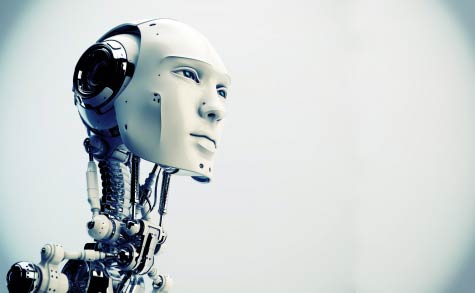Our propensity to repeat mistakes fascinates me. Back in the 1980s, when PC companies started appearing, the existing technology companies didn’t see the threat. By the time they entered the market, it was largely too late. Even IBM had to eventually leave the market, unable to compete. In the 1990s, the Internet caught everyone, including giants Microsoft and AOL napping, though, ironically, the firm that started that wave, Netscape, was an early failure. Last decade, it was search, social and mobile that caught companies by surprise. Google, Facebook and Apple moved into dominant roles.
This decade, it is artificial intelligence, consolidated converged data centers, applied social manipulation and robotics that are catching people napping. Let’s talk about this.
Artificial Intelligence
While products like Siri and Cortana are making aspects of artificial intelligence visible, it is really projects like IBM’s Watson, Google’s Deep Mind and startups like Sentient Technologies and BeyondCore that are all working to make our systems smarter. These efforts not only will transform big data analytics, they’ll likely transform our lives. Yet most of the mainstream tech companies seem to be sitting this out, much like their predecessors sat out the preceding waves. Not only could an AI system vastly improve the analysis of the massive amounts of data folks have been collecting, but it could have major implications for how firms are run and who works in them. This isn’t all goodness. Folks like Tesla’s Elon Musk think there is some risk that these things may start running out of control and could represent a risk to the human race that is unprecedented. Granted, if this last happens, the failure of firms to recognize the economic advantages of being on top of this will seem trivial by comparison, but the potential for massive disruptive change is unprecedented.
Consolidated Converged Data Centers
There are a lot of terms for the consolidated converged data center, but the first time I saw the concept, I was at Microsoft. They were talking about rethinking the data center as an integrated machine: literally stepping back and building a full data center, much like you’d build a PC or a server. Only VCE has really stepped up to this opportunity and it is reporting growth of better than 50 percent, year over year, or over 10 times the growth of some of its larger competitors. But we are still waiting for someone to take this even farther. Work is going on in places like Google, Amazon and even Facebook to see exactly how far this concept can go. New technologies have even emerged, like NVIDIA Grid, to fill critical performance holes that have arisen. The benefits in terms of uptime and maintenance cost savings are massive, butt the concept has yet to take off in the majority of major vendors.
Applied Social Manipulation
I should say applied social manipulation “done right,” because we are attempting to analyze this information but most are finding the effort unenlightening. I think this is because the folks doing the work aren’t social scientists and the properties being analyzed, like Facebook, are more like large public email sites. They have little to do with social interaction. However, new and little-known platforms, like Plague, which models how pandemics spread to influence opinion, are coming. These should better drive the change in people’s opinions and from them tools to more effectively, and quickly, accomplish this should emerge. You see, there will always be a problem of timeliness in trying to react to public opinion. But, as Apple demonstrated, it is far more profitable to drive the change in opinion and make money by anticipating that change.

Robotics
Google is up to its armpits in robotics, but initially it is projects like Baxter that are catching attention. From self-driving cars to robots that can get in and drive existing cars, to security robots, to robots like Baxter that can replace assembly line workers and be trained by those they replace, we are at the front end of a robotic revolution that in many ways mirrors the PC revolution. 3D printers are effectively custom-designed robots that build a wide variety of things, much like a printer prints. These increasingly include 3D scanners, which allow them to copy almost any 3D object. The shear breadth of offerings and changes that this will drive is mind boggling, yet the fact that existing technology companies mostly seem to be acting like this should be someone else’s market is amazing.
Wrapping Up: Change Is in the Wind but We Are Blind to It
It is clear that we are looking at change at an unprecedented level. But, as before, most of the existing technology firms seem to be unable to see the coming changes. When we’ve only had one or two major changes like this, the amount of vendor churn has been massive. This time, the major changes are far more pronounced and further reaching. I actually don’t think we can fully anticipate what each of these will do, let alone the combined impact of all of them at the same time. Google appears to be the most forward looking, but it has had focus issues so its example hasn’t been, so far, a good one.
I expect that by the end of this decade, much like the end of the last two, a lot of folks will be asking how they could have possibly missed this again. Maybe this is one of the things the AI efforts can eventually fix, because we humans appear to suck at anticipating change.
Rob Enderle is President and Principal Analyst of the Enderle Group, a forward-looking emerging technology advisory firm. With over 30 years’ experience in emerging technologies, he has provided regional and global companies with guidance in how to better target customer needs; create new business opportunities; anticipate technology changes; select vendors and products; and present their products in the best possible light. Rob covers the technology industry broadly. Before founding the Enderle Group, Rob was the Senior Research Fellow for Forrester Research and the Giga Information Group, and held senior positions at IBM and ROLM. Follow Rob on Twitter @enderle, on Facebook and on Google+



